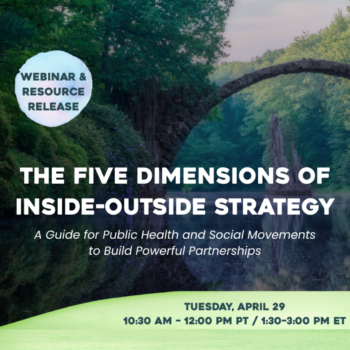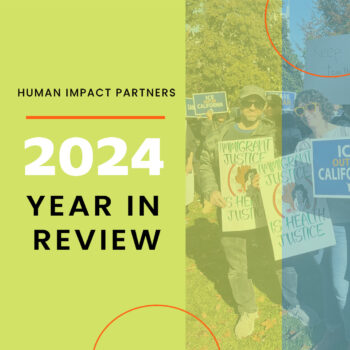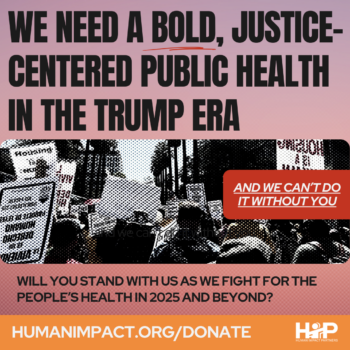| Press Release |
Human Impact Partners and Operation Restoration release report on the public health benefits of community-based sentencing for parents in Louisiana.
One in 12 children in Louisiana have had an incarcerated parent. Human Impact Partners joined up with Operation Restoration to assess the health and equity impacts of House Bill 264, known as the “Primary Caretakers” bill, that would expand the ability to set community-based sentencing for parents. Read the full report, “Keeping Kids and Parents Together: A Healthier Approach to Sentencing in Louisiana.”
On Tuesday, March 6, at 11:00 am CT, Operation Restoration is hosting a press conference to release this new research, with the following speakers:
- Representative Patricia Smith, Louisiana House of Representatives
- Judge Arthur Hunter, Orleans Criminal District Court Section K
- Dominque Jones, Daughter of incarcerated father and organizer
- Dolfinette Martin, Lead Organizer Voice of the Experienced
- Fox Rich, Formerly incarcerated mother and organizer
- Syrita Steib-Martin, Operation Restoration
- Annie Freitas, Operation Restoration
The event tied into #Cut50’s National Day of Empathy, a day of action to generate empathy on a massive scale for the millions of people in the United States impacted by the criminal justice system.
Main Research Findings
- Community-based sentencing is a healthier and fiscally responsible alternative. By staying connected with their parents, children have the opportunity to experience healthy development and attachment, which contributes to good mental health and fewer behavioral issues. Community-based sentencing also decreases costs to prisons and jails and keeps parents connected to the workforce.
- Youth of color are more likely to experience their parent getting locked up. Kids with incarcerated parents are at risk of facing a variety of physical, mental, and behavioral health issues throughout the rest of their lives as a direct result of separation from their parent due to incarceration.
- Mothers and grandmothers bear the brunt at home. When a father is incarcerated, his children’s mother remains as the primary caretaker 90% of the time. When a mother is incarcerated, her children are often displaced from their homes and frequently placed in the care of their grandmother.
- Incarceration is harmful to individual and community health. Prison and jail environments are not conducive to family visits. In addition, most mothers and fathers in state and federal prisons are held over 100 miles from their homes, creating significant barriers for kids to visit their parents.
About Us
Operation Restoration is dedicated to ending the mass incarceration of women and girls through education, research, and legislation led by women who have been impacted by incarceration.
Human Impact Partners challenges the inequities that harm the health of our communities through research, advocacy, and capacity building.




